How to Calculate the Size of Surge Bins
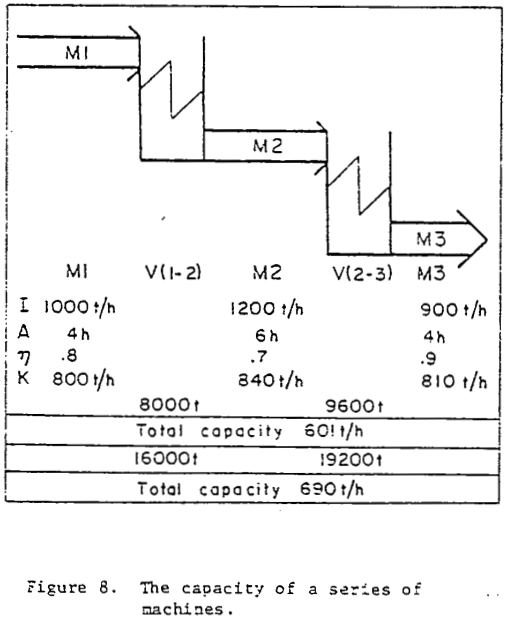
The purpose of a surge bin between two machines is to permit either of the two machines to continue production for at least some of the time while the other machine is interrupted by break down or by preventive maintenance or by other problems up or down the line. This results in a higher capacity […]
Leached Uranium Ore Restoration by Aluminum Chloride
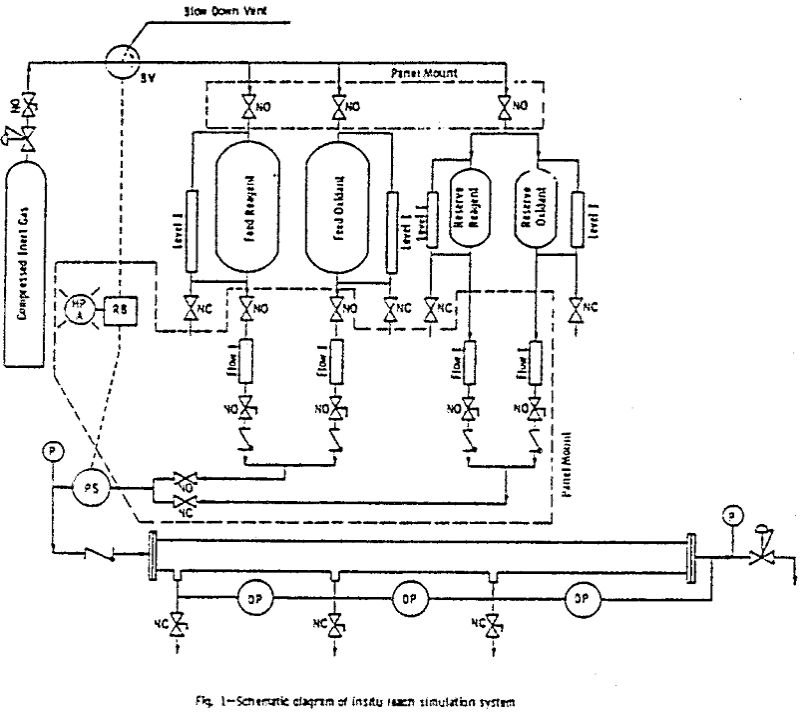
In situ leaching has been an attractive means of recovering uranium from small or low grade ore deposits. The process involves injecting a lixiviant, typically ammonium carbonate-bicarbonate and an oxidant into the uranium containing ore body. As the solution passes through the ore body, the uranium is oxidized from the insoluble plus four to the […]
Air Pulsated Jigs
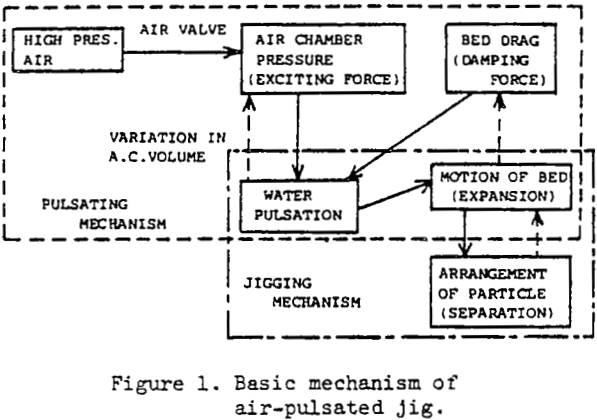
An air-pulsated jig has teen widely adopted as a main coal washer. It may be mainly because of its many technical and economic features such as large capacity, low running cost, long life, etc. However, the recent increasing demand of fuel coal requires a higher productivity and efficiency of the air-pulsated jig. To fill this […]
Control Acid Mine Drainage
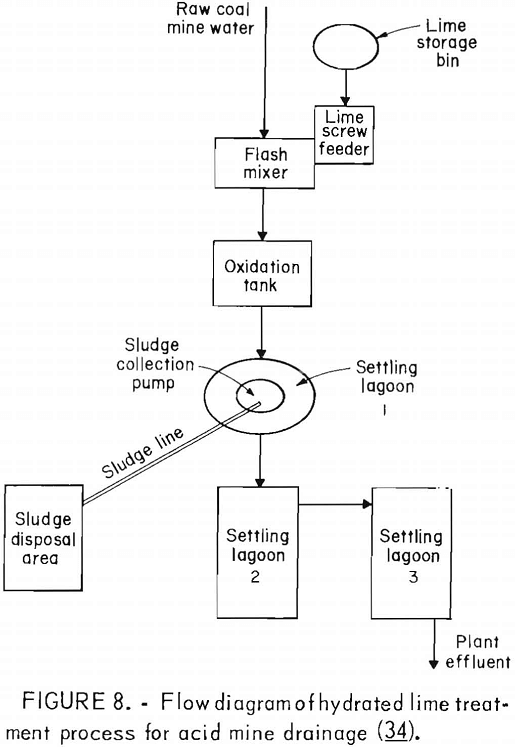
Acid Mine Drainage from underground coal mines and coal refuse piles is one of the most persistent industrial pollution problems in the United States. Pyrite in the coal and overlying strata, when exposed to air and water, oxidizes, producing ferrous ions and sulfuric acid. The ferrous ions are oxidized and produce an hydrated iron oxide […]
Copper Chalcocite Derimming of Pyrite with Cyanide
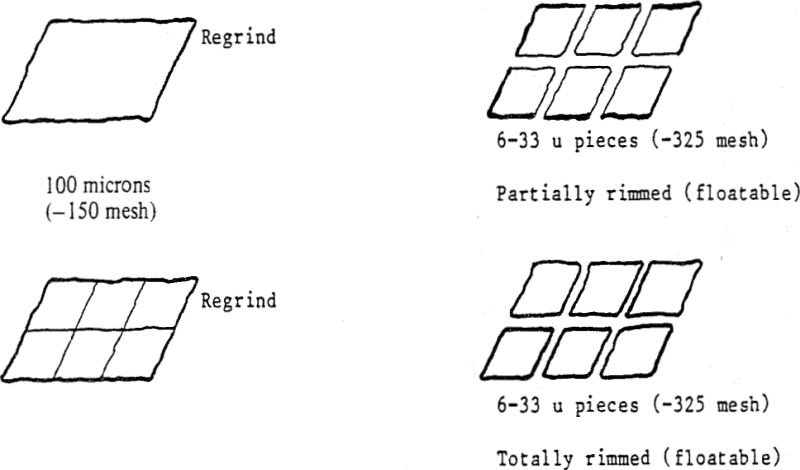
Many of the major copper ore bodies throughout the world contain chalcocite (79.9% Cu) as the principal copper mineral, yet the grades of copper concentrates produced from these ores rarely exceeds 25 to 28% Cu and in one known instance went as low as 13%. The low grade has traditionally been attributed to the presence […]
Titanium & Hydrometallurgy
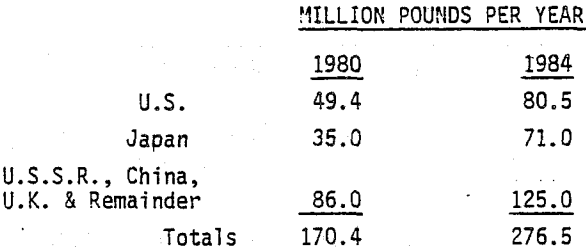
Titanium’s performance characteristics in acidic oxidizing and mildly reducing environments make it applicable to numerous currently defined and many projected hydrometallurgical applications. With titanium’s current and projected availability and price stability increased use in pressure leach, piping systems and electrorefining is practical. Titanium has a low density, .163 lb. per cubic inch, versus iron, as […]
Critical Surface Tension of Wetting of Sulfide Minerals
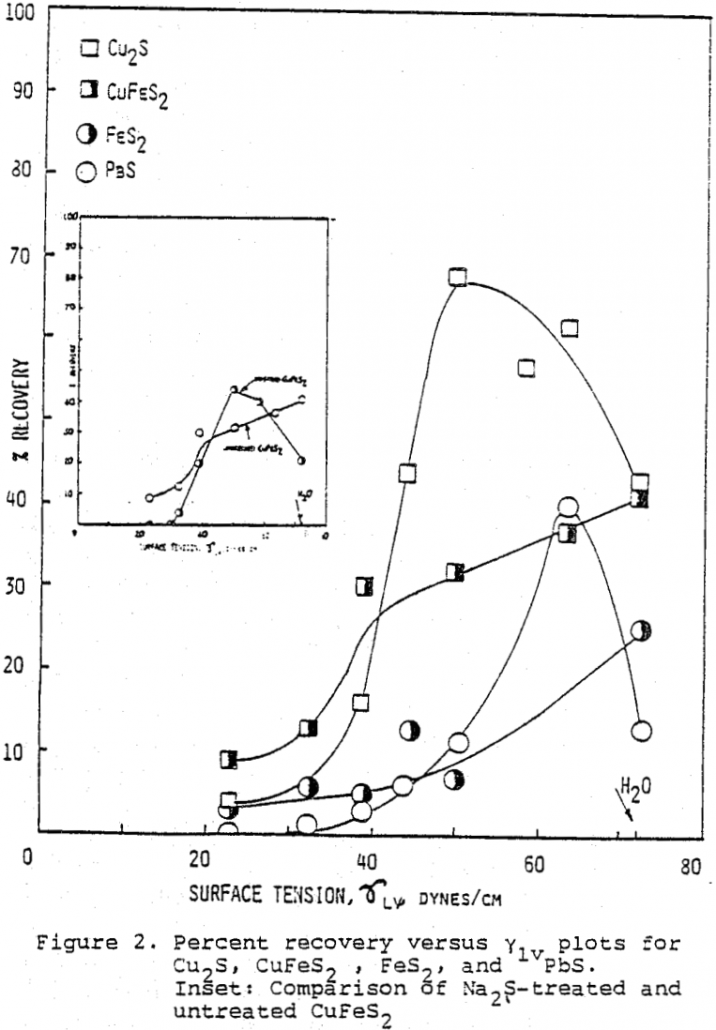
The critical surface tension of wetting (vc) of Cu2S, FeS2, PbS, and M0S2 were determined by plotting flotation recovery versus γLV which was arranged by methanol, and extrapolating to % R = 0. γc values ranged from 26 dyne cm-¹ for M0S2 to 49 dyne cm-¹ for PbS and elemental sulfur gave a value of […]
Influence of Flocculants on Filtration of Iron Concentrate
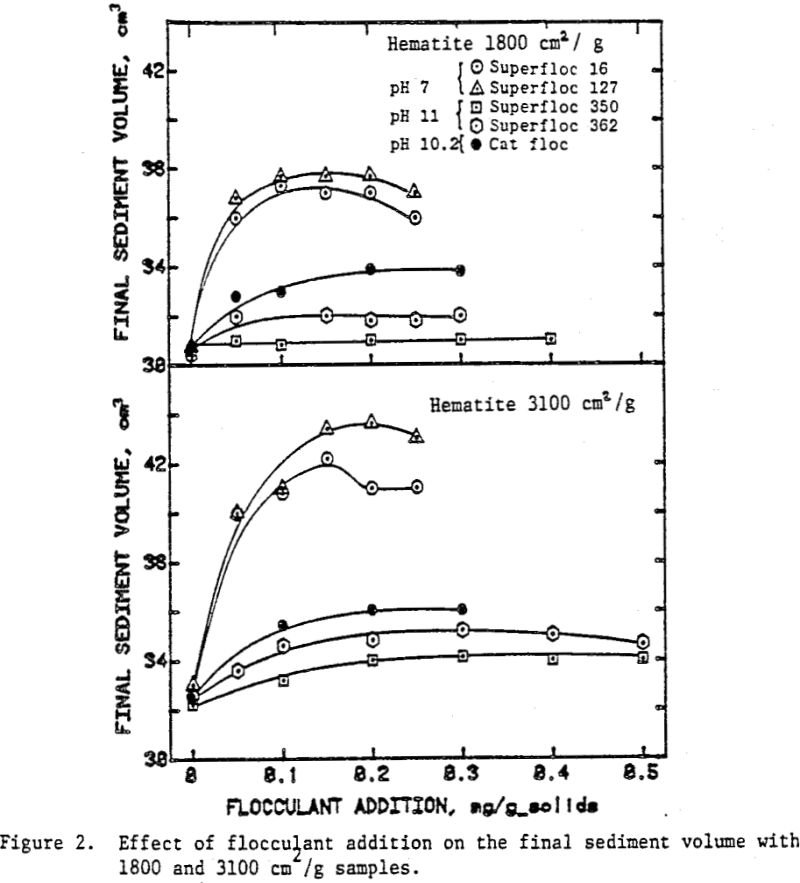
Experiments were conducted with the addition of several types of flocculants and surfactants. The filtration response of the slurries was studied in terms of the cake formation rate and the residual cake moisture. An analysis of the results is presented in ascertaining the role of flocculants and surfactants during filtration A specular hematite concentrate (67% […]
Mineral Processing Circuit Simulator
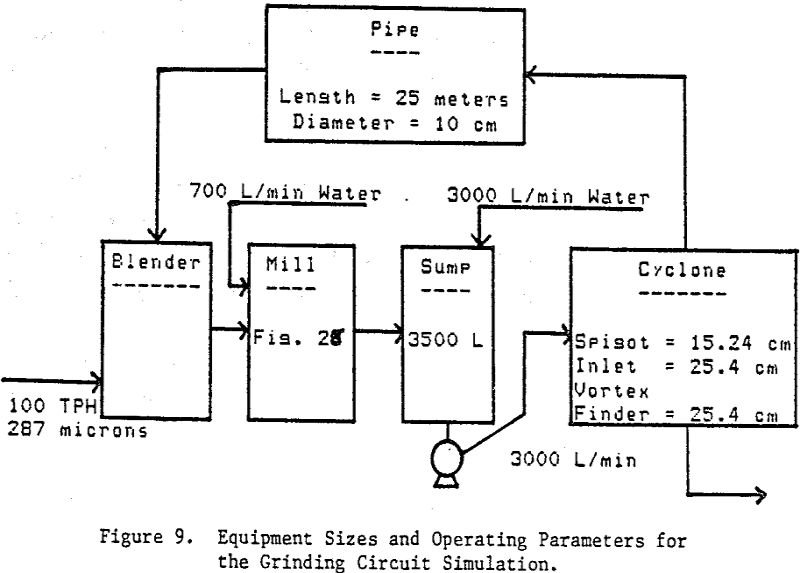
The fundamental design philosophy was based on meeting three criteria: flexibility, modifiability and usability. Flexibility refers to the ease of using the simulator to study a variety of flowsheets. A stream and unit operation numbering scheme was developed as a means of meeting this requirement. This scheme, in conjunction with modularized unit operation programs, made […]
Grinding Mills for Remote Mining Sites
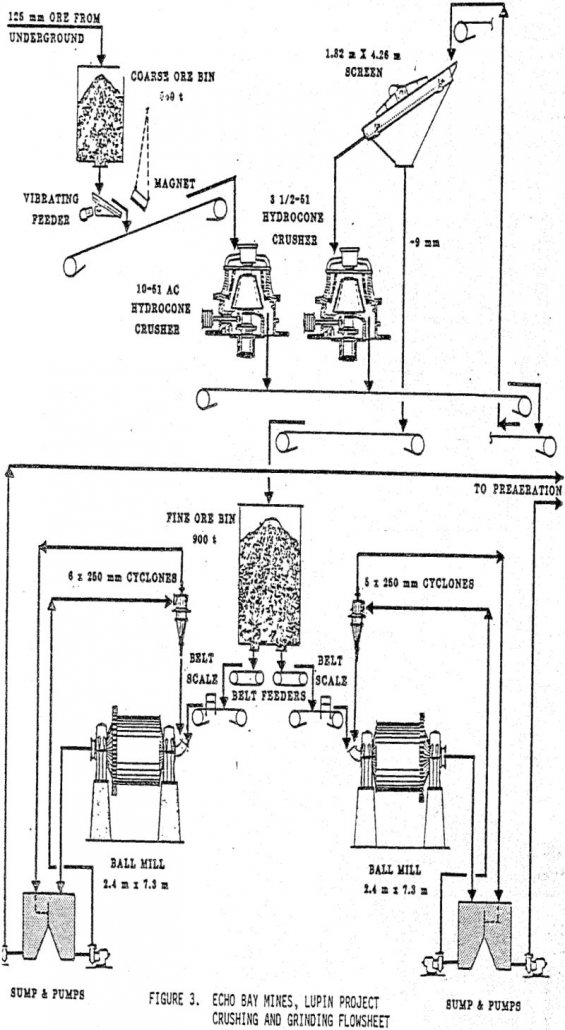
A number of challenges are faced when a mine is established at a remote site in northern Canada. The distance from suppliers, accessibility to the site, constraints on transportation of men and materials, and mining frozen ore are considerations which influence design. Mine Sites The Polaris Project of Cominco Limited of Vancouver is located on […]
